What is a Safari in Africa REALLY Like?

An African wildlife safari is a truly extraordinary experience, but what is a safari really like? Many safari goers are first-time travelers to Africa and have little idea of what to expect on safari.
We didn’t know the first time we set out on safari in South Africa and blasted The Lion King soundtrack. Now, with over one hundred safaris across 14 countries under our belt, we consider ourselves well-versed in the field.
If you find yourself with questions about what’s about to happen – fear not! Here’s what your days on safari in Africa will look like!
Our Favorite Safaris
What is a Safari Like? A Typical Day on an African Wildlife Safari
05:00-05:30 – Good Morning
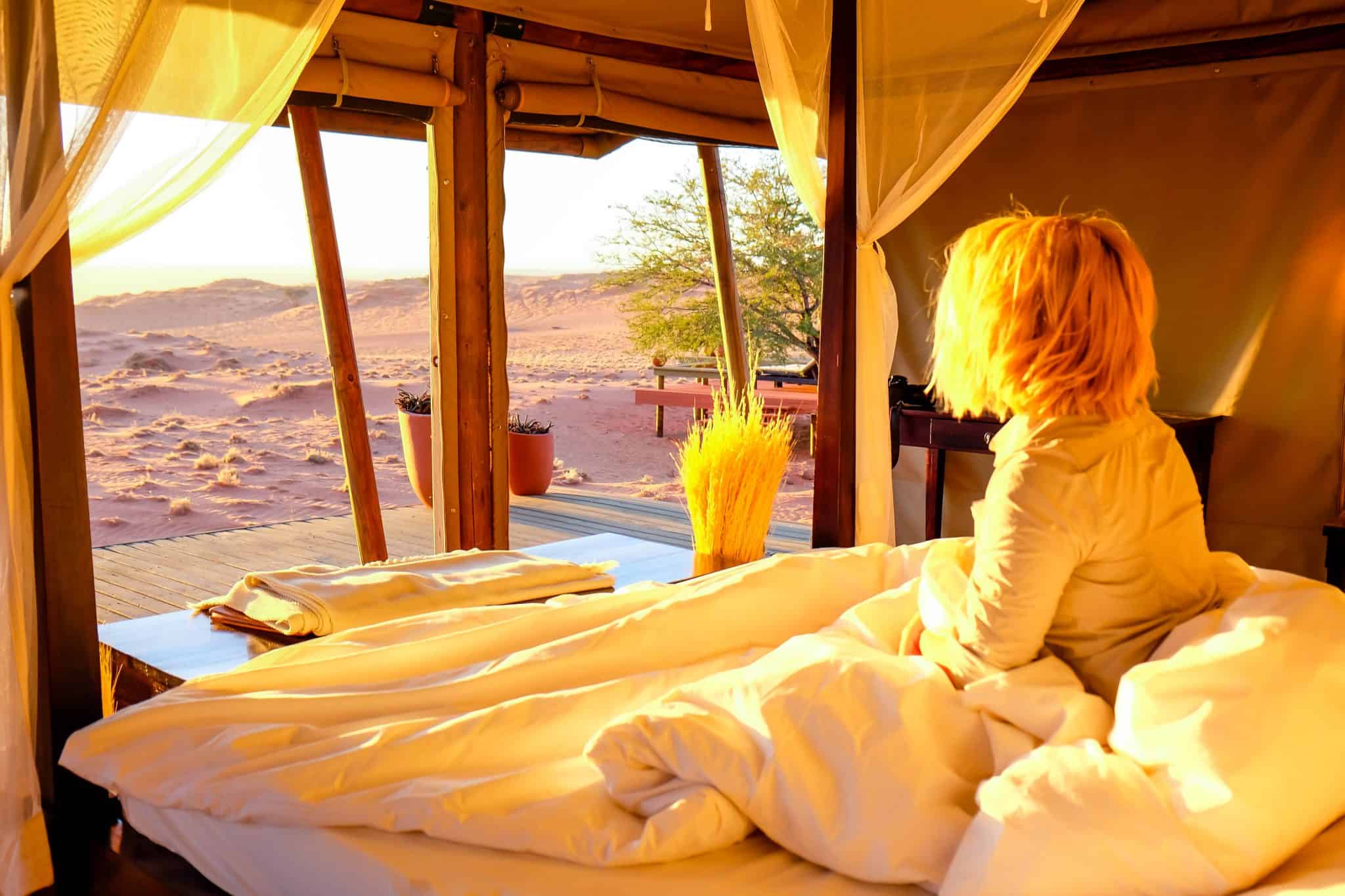

When wondering what is a safari like, just know you’ll be waking up early. There’s no sleeping in on an African safari. Early morning is when all the safari animals are out and about. It’s before the sun and the heat of the day sets in, so the earlier you wake up and are out of your tent, the better.
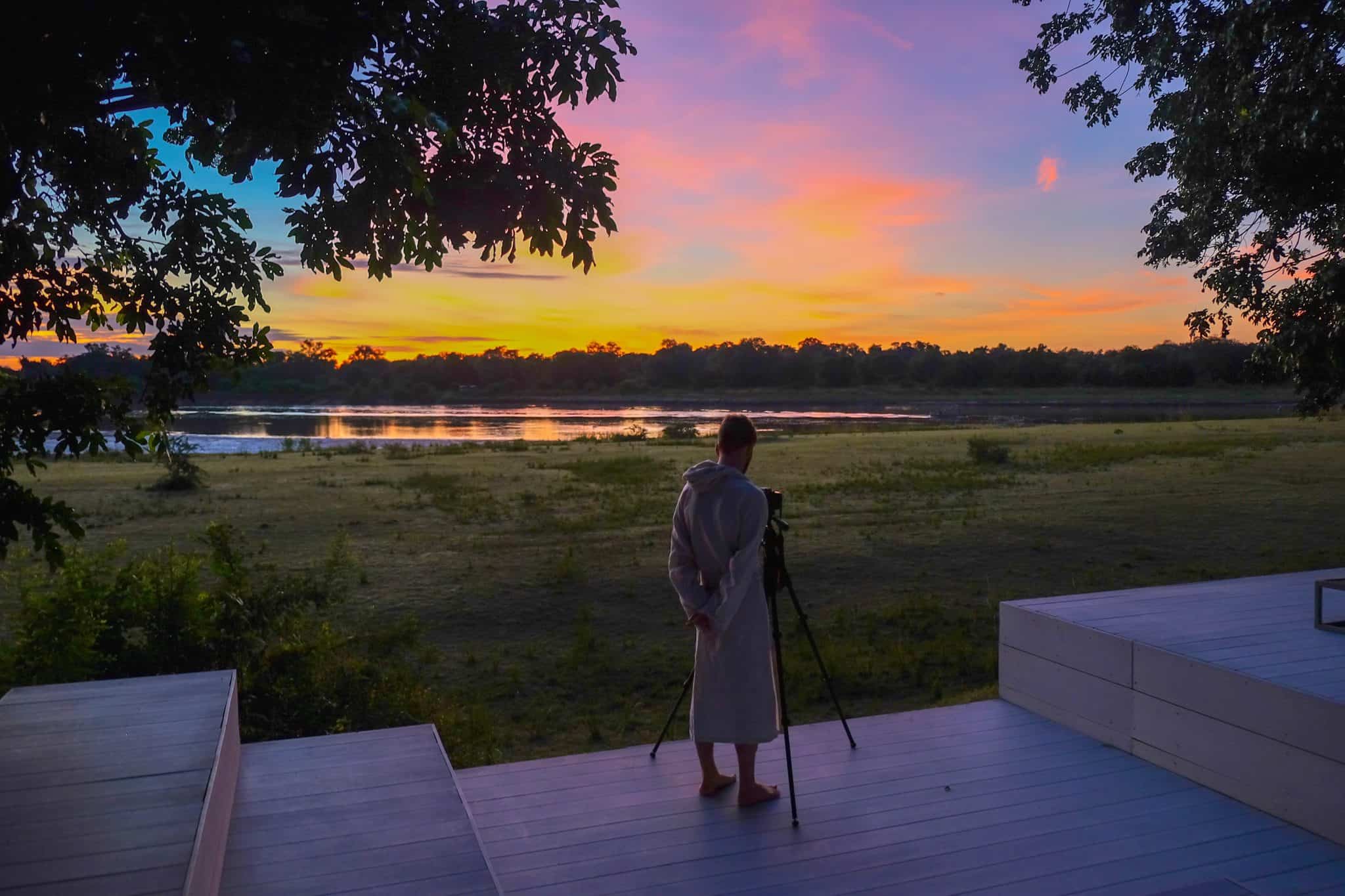
Most of our safari days begin between 5 am, and 6:00 am. Depending on the lodge you are staying at, you’ll have an early morning knock on your tent by one of the lodge employees. If you’re lucky, they may have even set tea or coffee outside your tent to give you that wake-up you need.

I personally don’t need much time to get ready while on safari. It’s often too hot for makeup and doing my hair – and no one cares, especially not the African wildlife.
06:00 – Breakfast Time
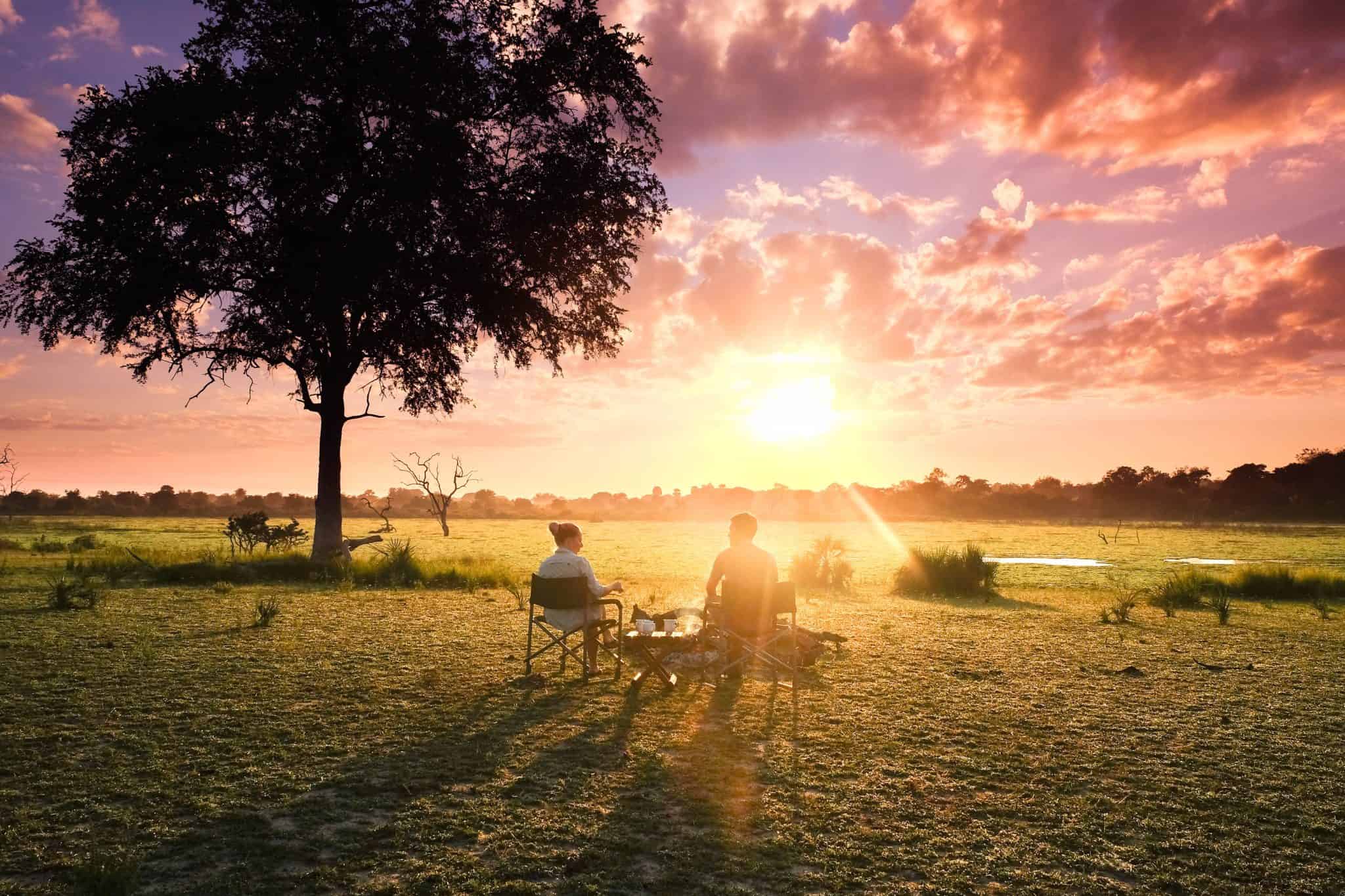

Breakfast is often served right after your wake-up call before you leave for your morning safari. In most safari destinations we’ve been to, breakfast is a communal affair and set around a bush fire while watching the buffalo roam by. You can expect pastries, fruit, cereal, and eggs for breakfast.
06:30 – Morning Activity
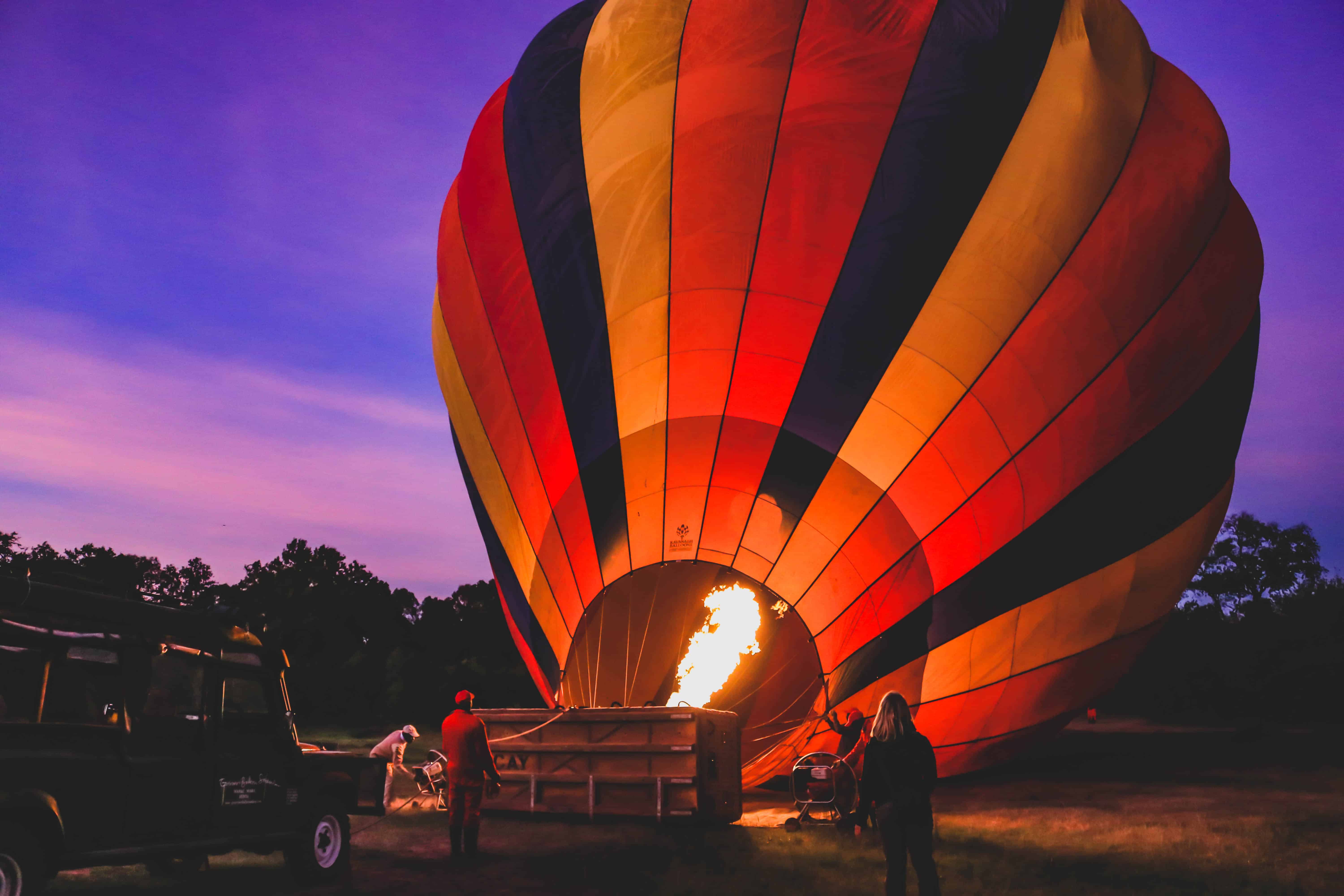
Right after breakfast, the morning activity begins. Often for me, this is a game drive through the bush while I’m still waking up. However, the morning is also a good time to go on a bushwalking safari if the park you are in allows that. If you’re somewhere like the Masai Mara, it’s also possible to book a once-in-a-lifetime balloon safari.

Morning game drives are a great time to catch all the animals waking up and starting their day. This is when they are most active as they are typically out grazing before the midday sun comes and it gets unbearably hot.
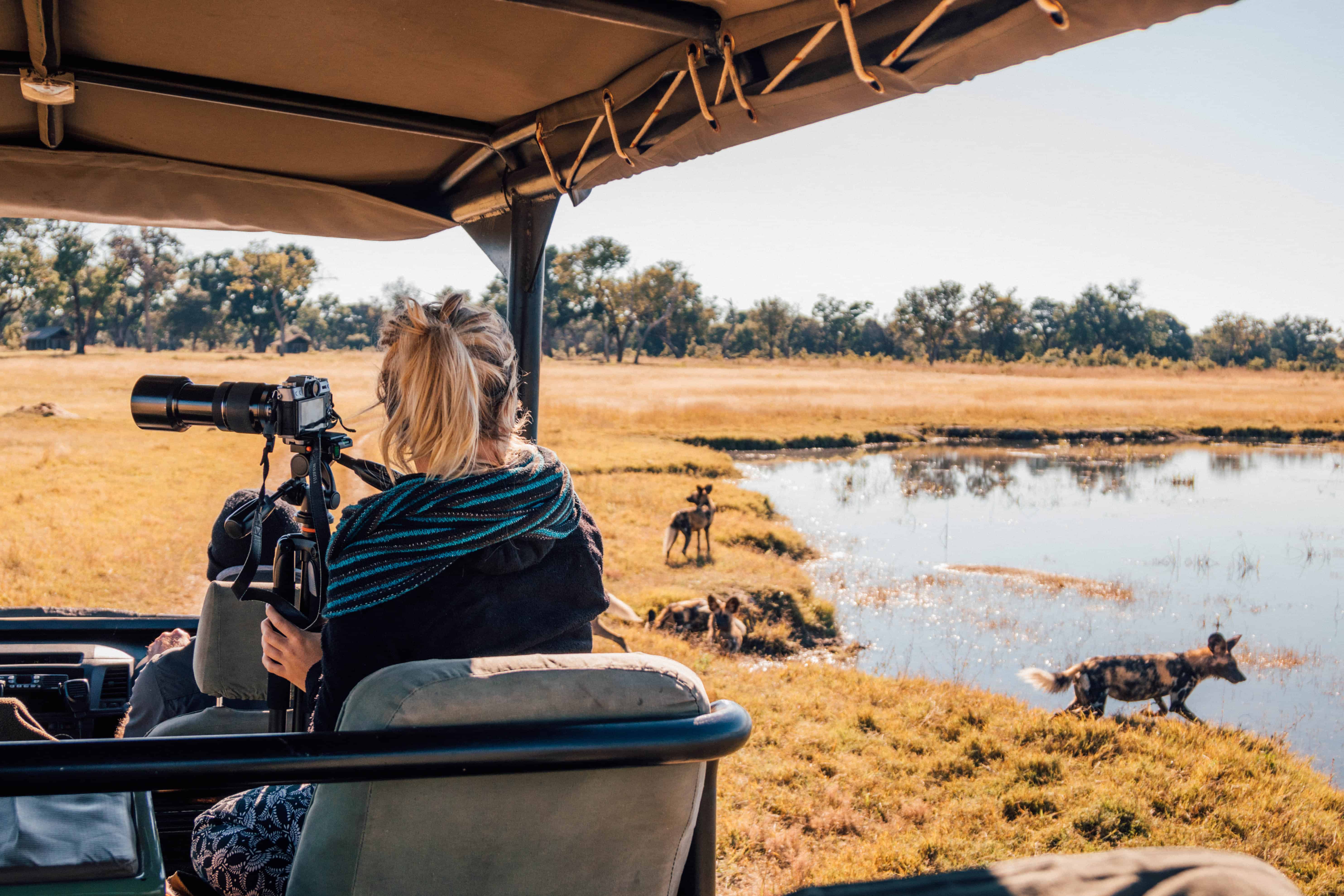
Morning safaris have been where I’ve seen a few of our best wildlife experiences. This has included a wild dog kill in Hwange National Park, a leopard kill in Kafue National Park, and so much more!
08:30 – Bush Coffee


On most safaris we’ve been on, there’s been a stop for bush coffee halfway between your morning game drive. This allows you to get out of the game viewer, stretch your legs, and wake up with fresh coffee and chatter. Ask your safari guide to bring some Amarula to enjoy a true bush coffee!
10:30 – Rest Time
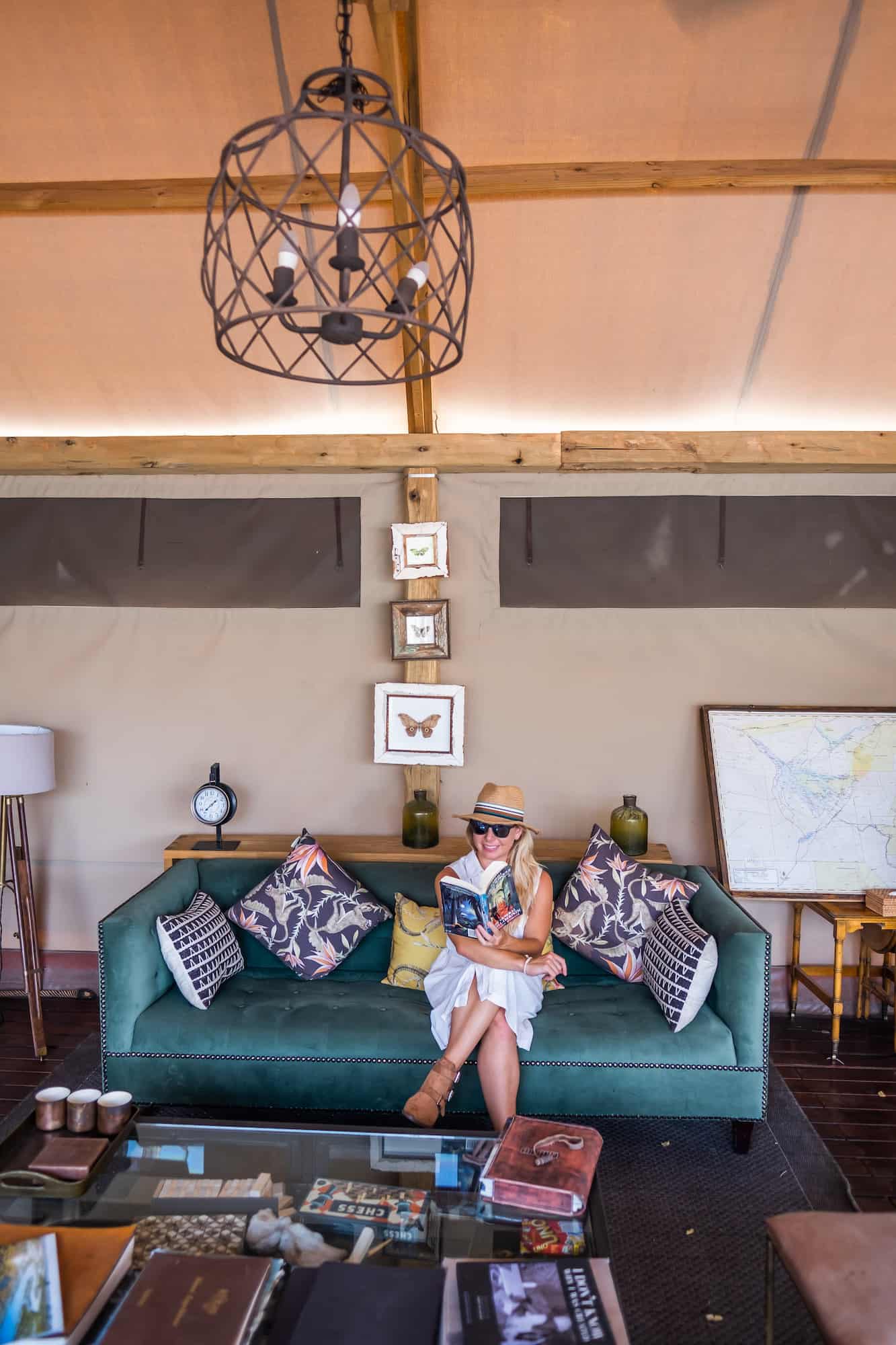
Morning activities tend to last a few hours. Depending on what you see, you can expect to be out in the bush for 3+ hours. After you get back to the lodge, you’ll have a chance to freshen up and relax before lunch. This is typically when I like to shower if it’s been super hot, read a book, walk around camp, or close my eyes for a bit.
12:00 – Lunch

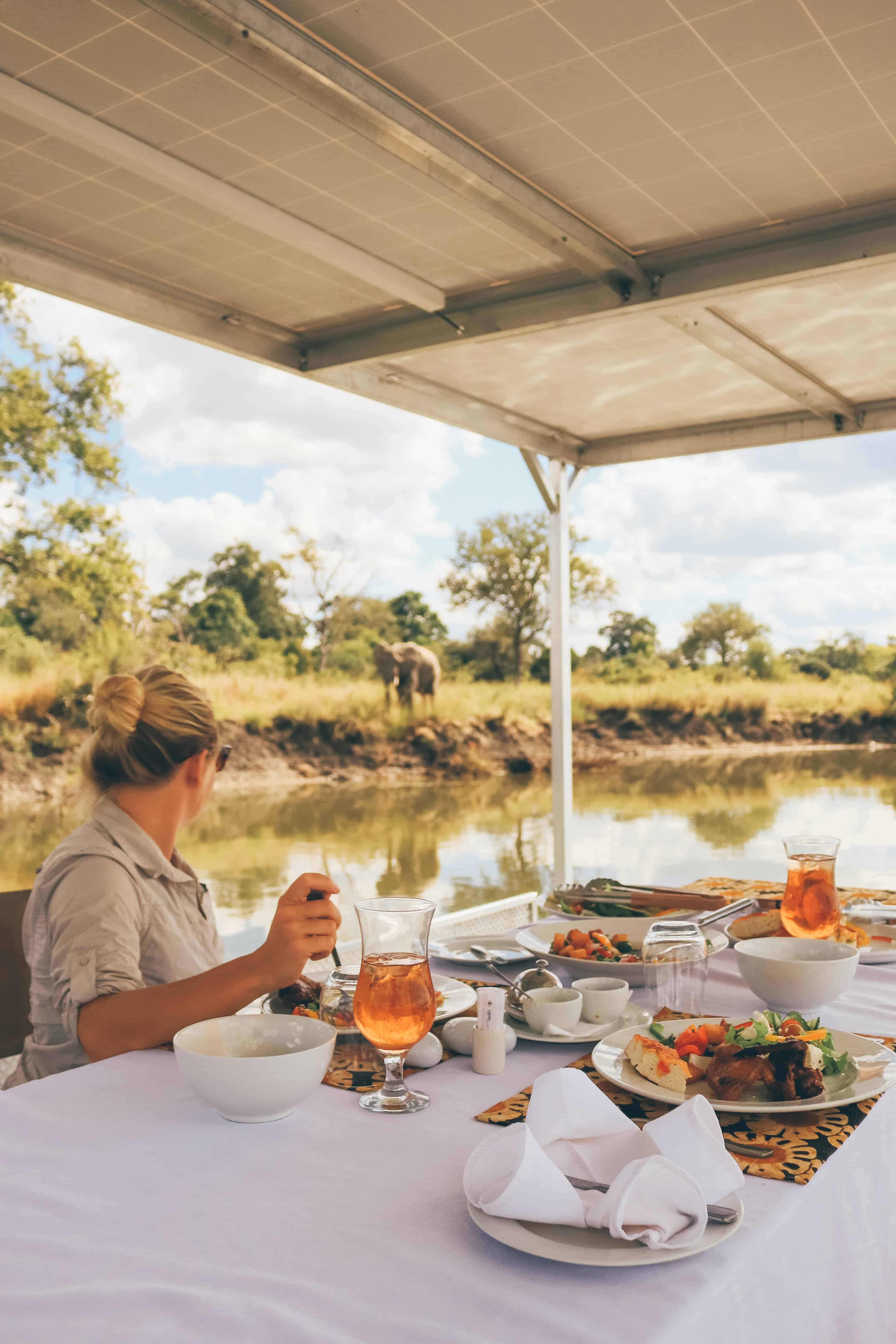
National Park
Lunch on safari is often served at the lodge you are staying at. More often than not, lunch is also a communal meal where you can enjoy the company of the other safari guests. However, we did have the awesome opportunity to have lunch on a solar-powered pontoon on the Kafue River (pictured above).
13:00 – Rest Time
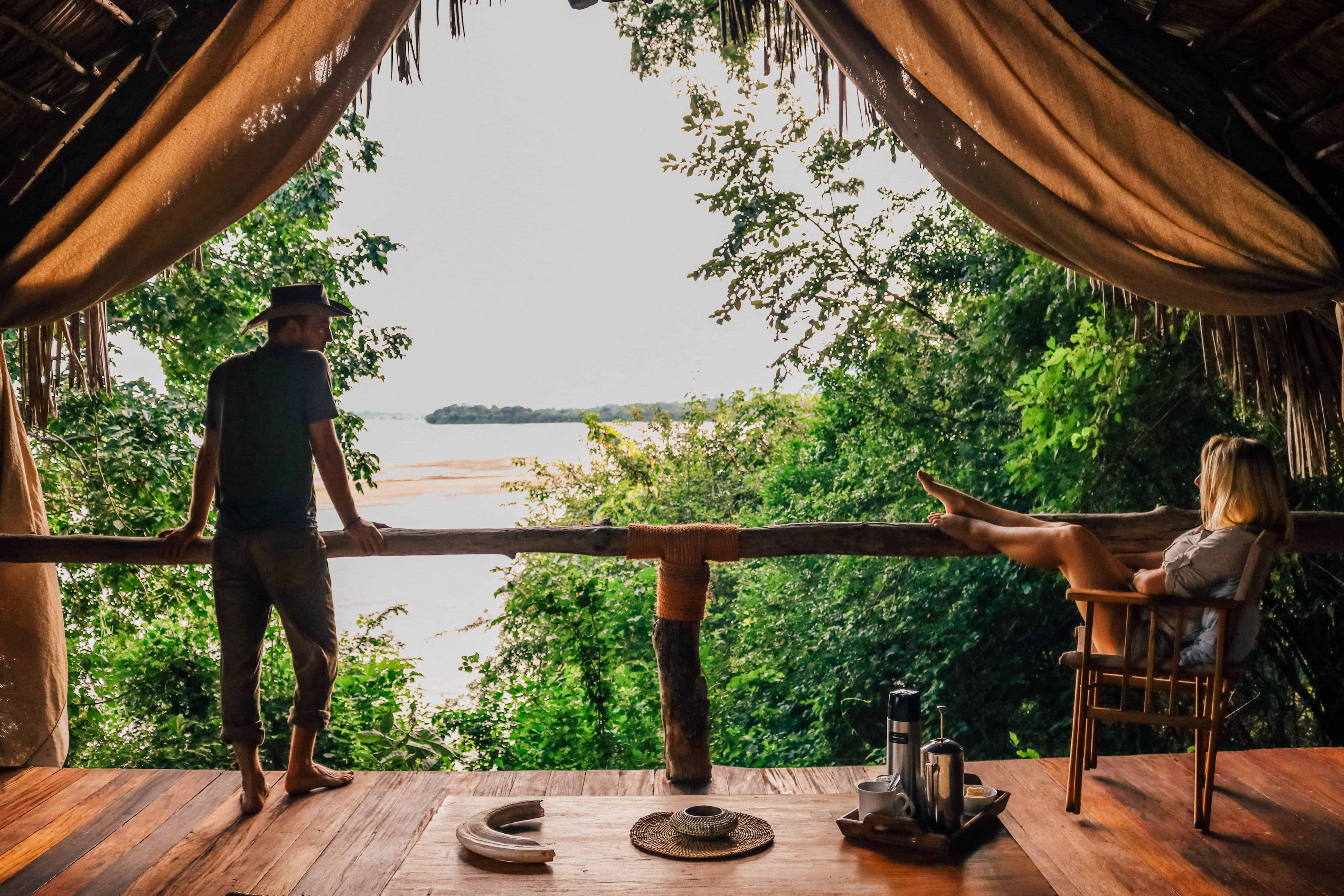

After lunch is when you have free time to do whatever you want. Whether this means a quick workout, dip in the pool if there is one, or taking a proper nap is up to you. Rest times are enjoyable and allow you to enjoy the camp you are staying at. I also typically need to rest for an hour after 05:00 wake up.
15:30 – Tea Time

Britain colonized many African nations. This means that having afternoon tea while on safari is almost a given. We’ve had elaborate tea times where we’re often served a second lunch. (You never lose weight on safari!). I love tea time, which means I get more coffee to keep going for the day.
16:00 – Afternoon Activity


After tea comes the afternoon activity. This means either another game drive, river cruise if you’re near a river, mokoro ride if you’re in Botswana, walking safari, or even a horseback ride if you’re enjoying a horseback safari lodge.
Afternoon activities are shorter than the morning activities, given the sun typically sets around 18:00-18:30. I love afternoons in the bush as it means I’m going to see yet another amazing African sunset (they NEVER get old).
18:00 – Sundowners
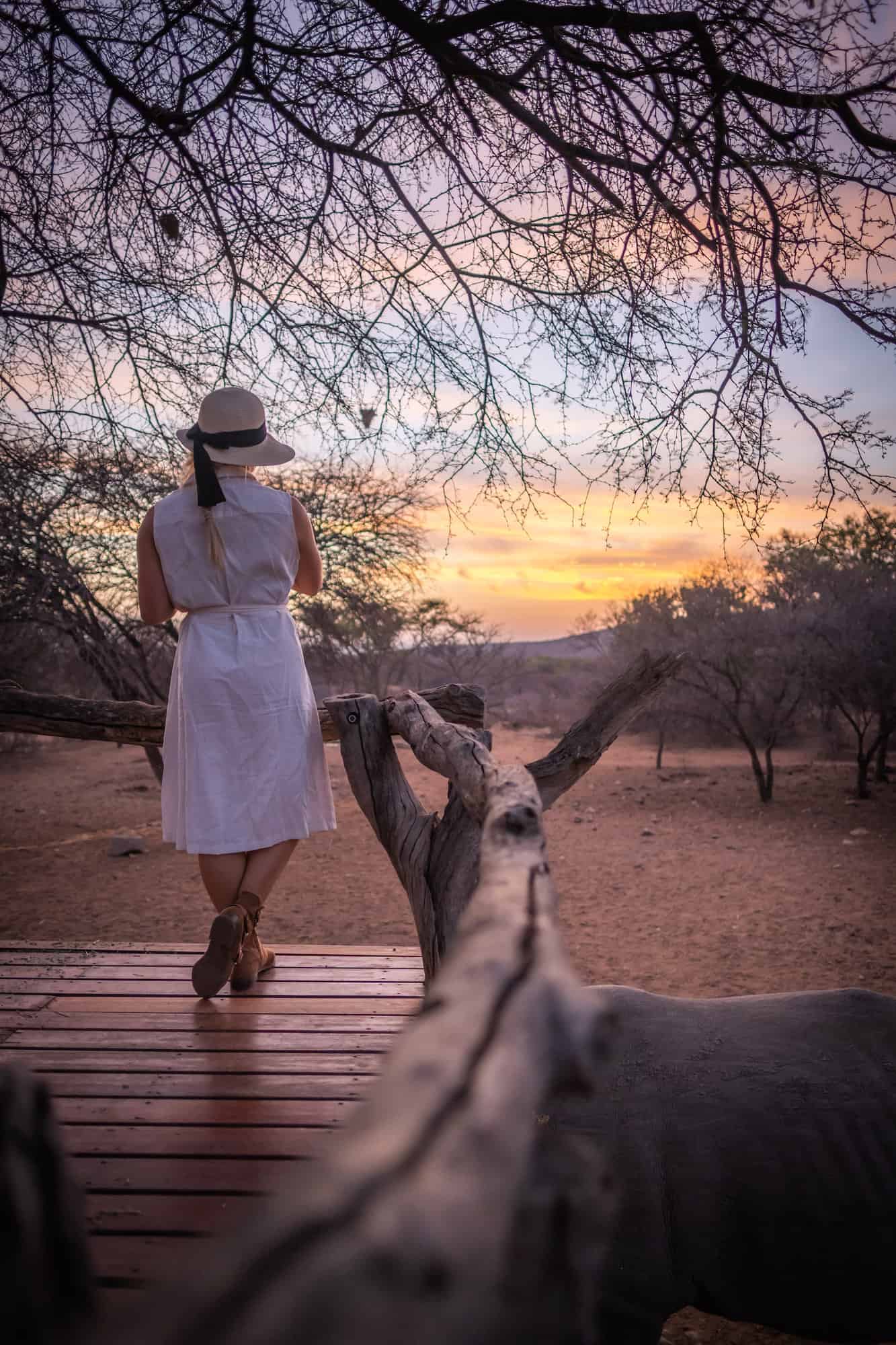

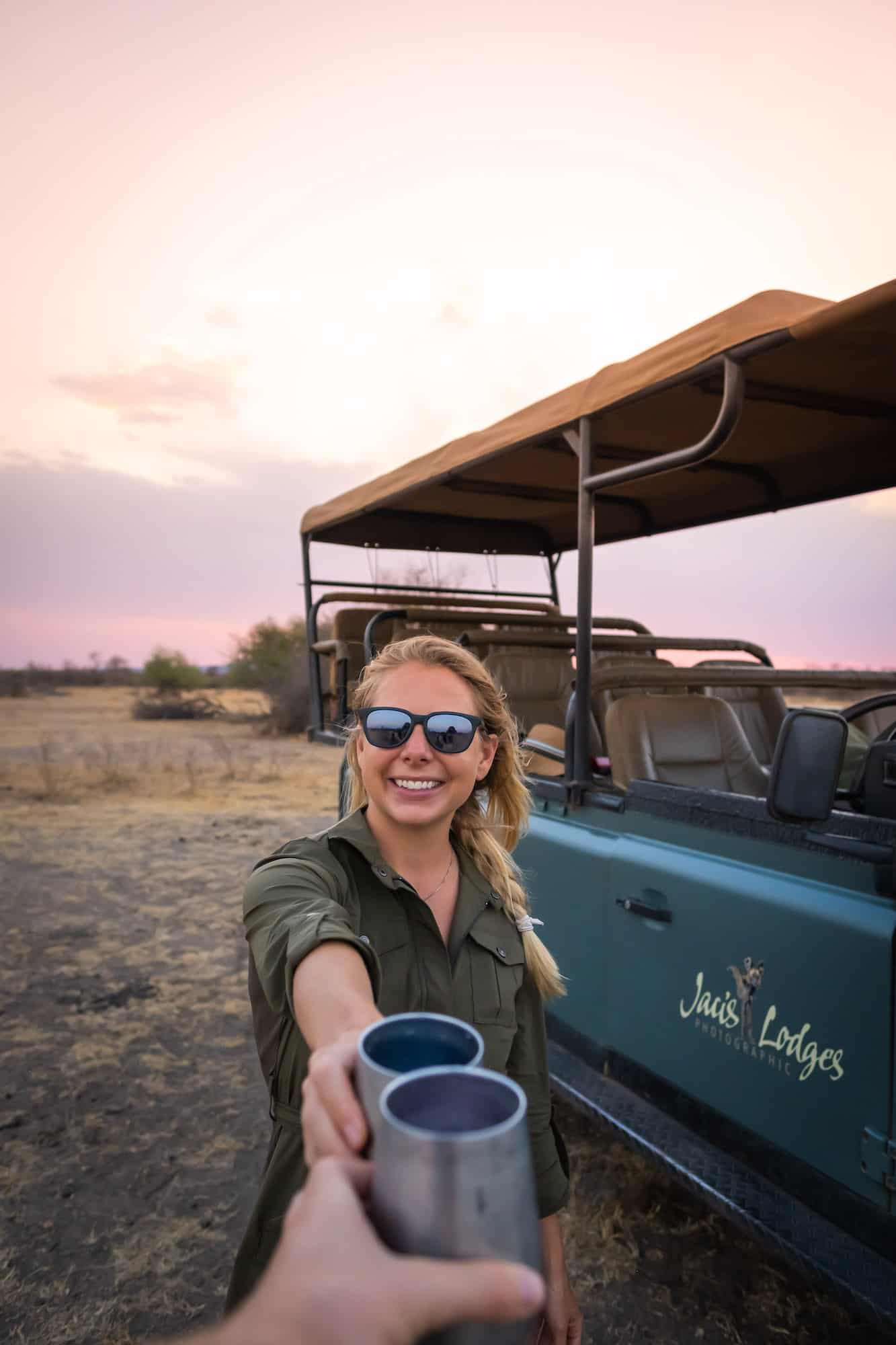

During your afternoon activity, the sun will set, marking another day finished in Africa. This is often my favorite time as it means it’s SUNDOWNER time! What’s a sundowner?
An African sundowner means to have a drink while the sun is setting. Often in Africa, this means a Gin and Tonic and more snack items like peanuts, pretzels, and biltong. It’s another great time to stop doing what you’re doing and reflect on the day with the company around you.
19:00 – Night Drive

Depending on where you are on safari, you may be able to enjoy a night game drive back to the lodge. This is your chance to spot all the nocturnal African bush animals.
Your guide will typically get out of the spotlight and start searching for elusive animals like leopards, hyenas, porcupines, African bush cats, and Aardvarks. If you get lucky – and I mean really, REALLY lucky you might even see a pangolin (but don’t count on it).
20:00 – Dinner

Don’t worry. There’s no way you’ll ever go hungry while on safari. African wildlife safari companies stuff you with food, so plan on dieting when you get home.
Around 20:00 marks dinner time. Sometimes, dinners are in a communal setting, or sometimes, you’ll enjoy a private dinner with your party. Dinners are often served with bottomless wine or three or five-course. Though, some of the more mid-range tour operators may make a buffet dinner.
22:00 – Bedtime

You’ll not often find me in bed at such an early hour, but on safari, you’ll be begging for a comfortable bed. These are long and early days with a lot of activity. I’m typically zonked by the time I roll into my room or tent after dinner. It’s shower time and lights out!
WAKE UP AND DO IT ALL OVER AGAIN!
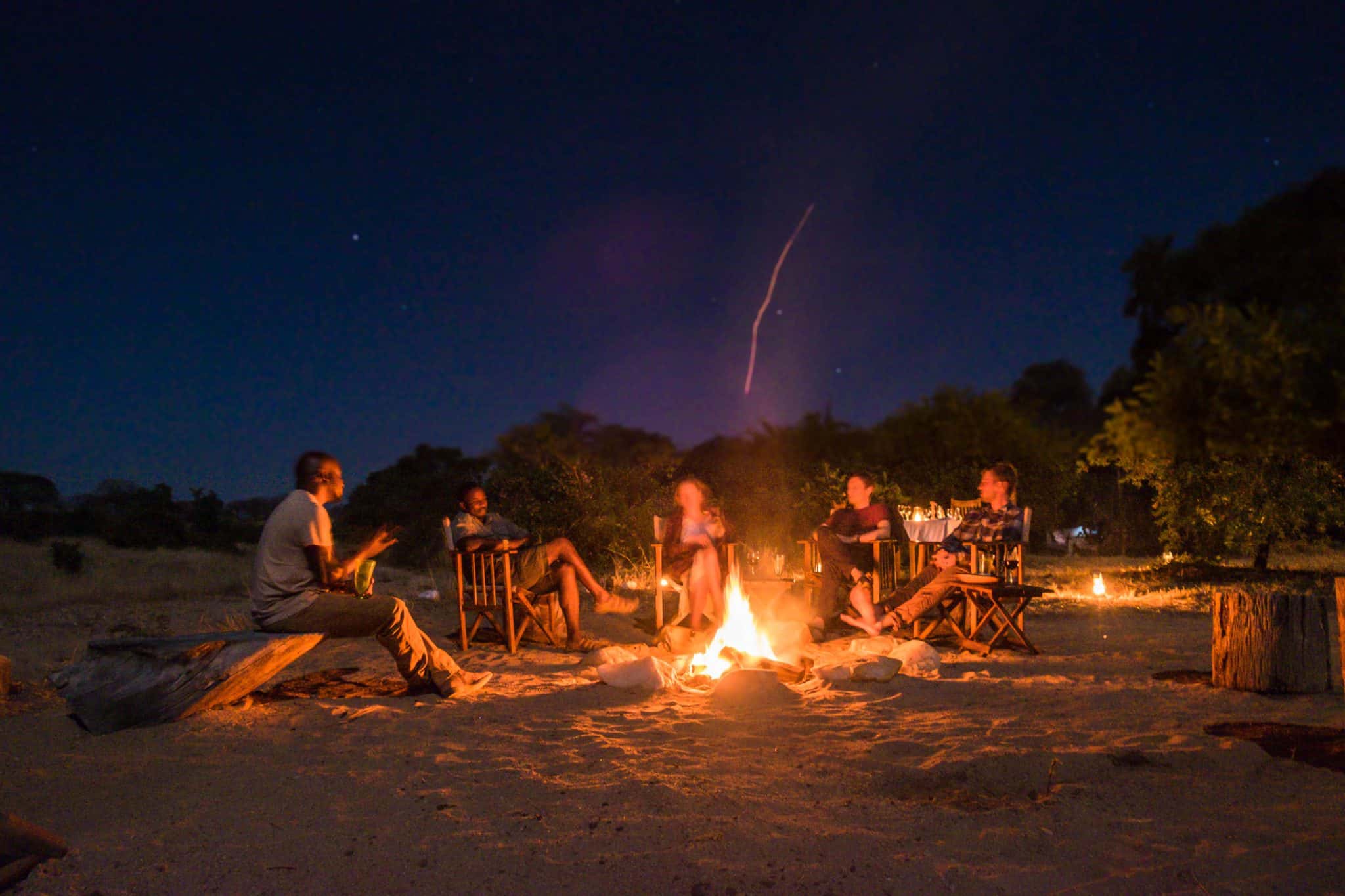
Hopefully, that helped answer what a safari is like. As you may see, an African safari is not a completely relaxing holiday but an exciting and once-in-a-lifetime opportunity. You will, without a doubt, have a million fantastic experiences you can only have in Africa, so make the most of it!
Wake up early, drink sundowners around the campfire until you can’t keep your eyes open, and revel in all the magic that the animals of Africa bring. Then after your safari is over, head to the coast and enjoy sleeping in the white sand beaches!
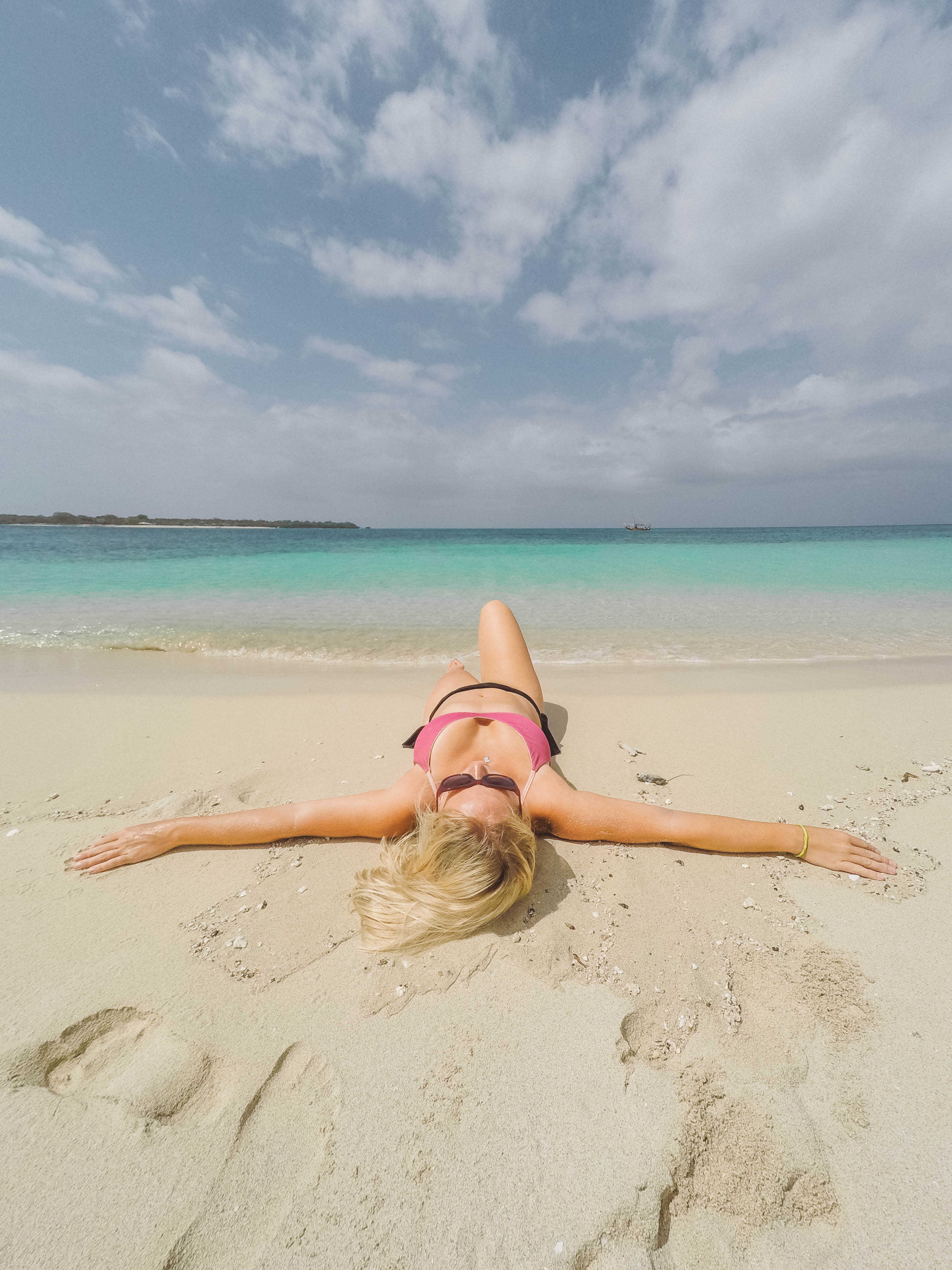
Book A Safari in Africa
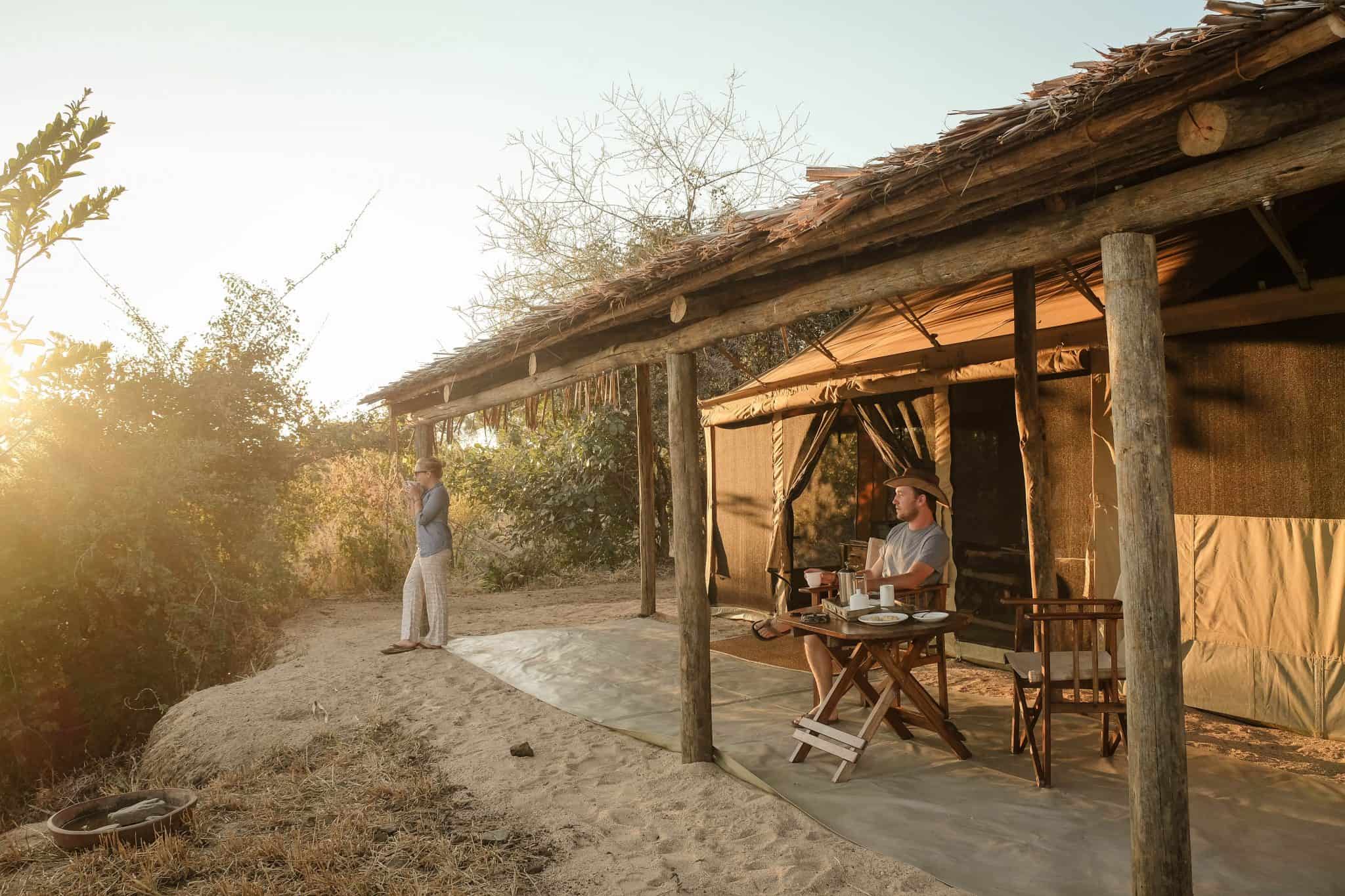
Traditionally if you wanted to book a safari, you’d have to go to a travel agent and have them book your safari for you. They suggest camps and lodges then present you with a large bill. Most of the industry still operates in this fashion.
However, Timbuktu is a new platform that allows you to select the lodges you’d like and see the pricing per day that way. You can select the best itinerary for yourself. They will then contact the lodges and help you through booking your safari. Experts on staff can also provide suggestions and arrange the little details like a travel agent.
What to Pack for an African Safari

Packing the right safari clothes is always a good idea, but it’s never essential because you can wear whatever you want. We also go in-depth on the best women’s safari clothes!
Plan Your Trip to Africa
- Travel Insurance: We don’t travel without travel insurance and neither should you. You never know what can happen while traveling so it’s best to be prepared. HeyMondo provides excellent short-term and long-term travel insurance plans.
- Travel Waterbottle: When we’re uncertain about the water supply we use our Grayl Purifier. It’s come in exceptionally handy around Africa.
- Camera Gear: Chances are you’ll want a camera for your trip to Africa. We love the Sony RX100V for a pocket-size camera and the Fujifilm XT-4 for a professional camera. Check out our favorite cameras for Africa.
- Safari Clothes: Lightweight, beige, and moisture-wicking clothing are great for traveling Africa. See our favorite safari clothing here.
- Safari Hat: A good hat is both stylish and functional.
- Safari Bag: A durable bag is ideal for traveling around Africa.
- Safari Pants: We recommend neutral-colored pants as they’re great at hiding dirt and can match most shirt colors.
- Safari Shirt: Shirts like these are lightweight and keep the bugs away!
- Boots: While you don’t need to wear sturdy shoes every day, at least one pair of safari boots will make your trip nicer!
- Travel Adapter: You’ll need a special travel adapter for traveling to Africa. Get one before you get there so you don’t pay a premium on the ground.

